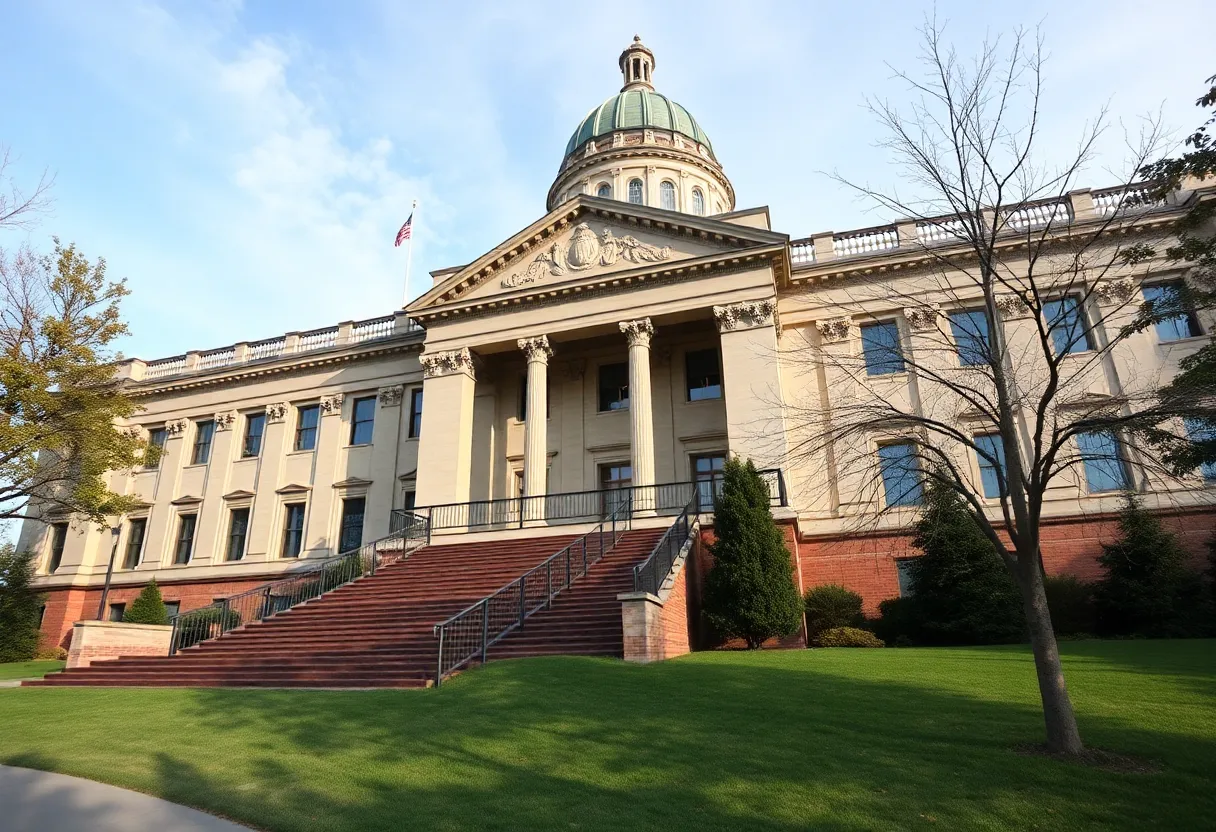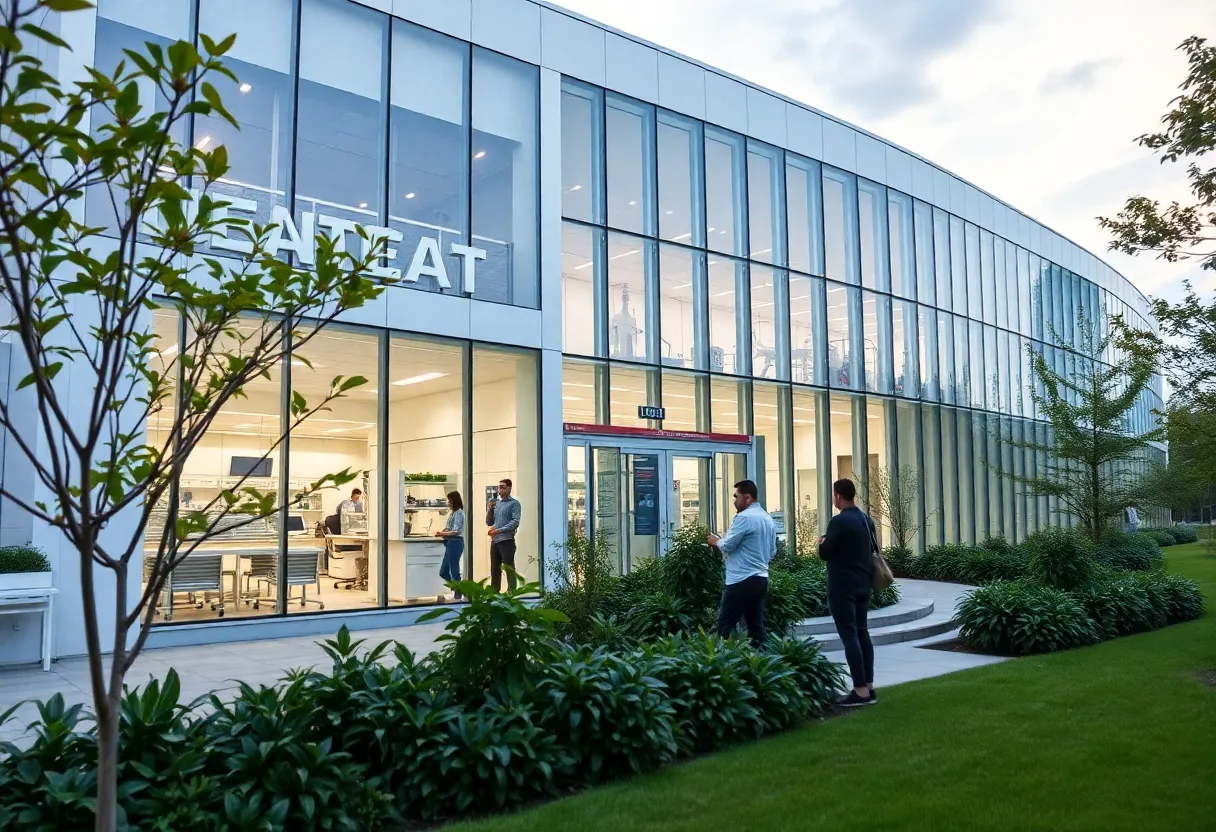News Summary
The Rhode Island Senate is on the verge of a leadership shift, with discussions around increasing income taxes for high earners intensifying. Majority Leader Val Lawson, a frontrunner for the Senate presidency, previously indicated openness to tax hikes, contrasting with the late President Ruggerio’s stance. As pressures grow for funding public services and addressing shortages, the debate on Rhode Island’s tax policy takes center stage. Governor McKee and House Speaker Shekarchi express caution against tax increases while a recent report criticizes proposed tax rate hikes. The outcome may have significant implications for the state’s fiscal future.
Providence, Rhode Island – Rhode Island Senate Leadership Change Sparks Debate on Raising Income Taxes for High Earners
The Rhode Island Senate is poised to elect new leadership later today, raising speculation regarding the potential for increased income taxes on the state’s highest earners. The vote comes at a time when the Senate is looking to navigate financial challenges and address growing demand for public services.
With Majority Leader Val Lawson considered the front-runner to become the new Senate president, a marked shift in tax policy discussions may occur. In comments made last December, Lawson expressed a willingness to consider raising income taxes, a notable departure from the late President Dominick Ruggerio’s stance on the issue.
Another key player in this leadership transition is Senator Frank Ciccone, who is vying for the majority leader position. Ciccone has a notable history of sponsoring proposals aimed at increasing taxes on wealthy individuals, further fueling the debate on the potential for tax hikes in Rhode Island.
In contrast, Governor Dan McKee has publicly voiced opposition to raising taxes, asserting that he would only support such a move if justified by significant circumstances. Similarly, House Speaker Joe Shekarchi has downplayed the likelihood of increased taxes, emphasizing the need for fiscal caution.
A recent policy brief from the Rhode Island Public Expenditure Council (RIPEC) has provided additional context to the discussion around income tax changes. The report criticizes a proposed hike in the top income tax rate, suggesting an increase from 5.99% to 8.99% on income exceeding $625,000 could be both unnecessary and burdensome. RIPEC highlights that income tax revenues have already experienced a steady growth, averaging 6.2% annually between the fiscal years of 2019 and 2025.
Impact on High Earners and Economic Growth
RIPEC President Michael DiBiase noted that high earners in the state already contribute a disproportionate share of tax revenue, which plays a crucial role in supporting both economic growth and philanthropic efforts. The organization advocates for enhancing the competitiveness of Rhode Island’s tax code instead of initiating rate increases that could deter high-income individuals from living or investing in the state.
As the state grapples with the implications of a possible tax increase, analysts have suggested a reconsideration of the opposition by McKee and Shekarchi could emerge if there are substantial cuts to federal funding. These cuts could place further pressure on the state’s budget and necessitate alternative revenue-generating measures.
Addressing Public Needs
The unfolding discussions on income tax policy are occurring against a backdrop of increasing pressure on state leaders to address critical issues, such as a significant shortage of primary care providers. Hence, the need for new funding mechanisms is becoming more pronounced as public services demand rises.
Should Lawson be elected as Senate president, it is speculated that she may approach the matter of tax increases with caution, especially considering that proposing a controversial tax hike might not be the ideal first initiative to undertake in her new role. Additionally, RIPEC’s research and perspectives may serve as a valuable resource in the ongoing discussions regarding income tax proposals, further influencing the legislative agenda moving forward.
As the Senate prepares for its leadership transition, the conversations surrounding tax policy will undoubtedly play a pivotal role in shaping Rhode Island’s fiscal future. The outcome of today’s vote and subsequent policy decisions will be closely monitored by both supporters and opponents of increased taxation in the state.
Deeper Dive: News & Info About This Topic
- Boston Globe: Rhode Island Senate Leadership Change Sparks Debate on Income Tax Hike
- Providence Business News: RIPEC Wealth Tax is No Solution to State’s Fiscal Challenges
- GoLocalProv: Rhode Island Has 8th Highest Tax Burden in U.S. According to New Study
- Kiplinger: Rhode Island State Tax Guide
- Providence Journal: Tax Hike on Top Earners Proposed by Progressives Amid Federal Medicaid Cuts
- Wikipedia: Rhode Island
- Google Search: Rhode Island Tax Policy
- Google Scholar: Rhode Island Income Tax
- Encyclopedia Britannica: Rhode Island
- Google News: Rhode Island Economy

Author: STAFF HERE PROVIDENCE WRITER
The PROVIDENCE STAFF WRITER represents the experienced team at HEREProvidence.com, your go-to source for actionable local news and information in Providence, Providence County, and beyond. Specializing in "news you can use," we cover essential topics like product reviews for personal and business needs, local business directories, politics, real estate trends, neighborhood insights, and state news affecting the area—with deep expertise drawn from years of dedicated reporting and strong community input, including local press releases and business updates. We deliver top reporting on high-value events such as WaterFire, Rhode Island International Film Festival, and Rhode Island Comic Con. Our coverage extends to key organizations like the Greater Providence Chamber of Commerce and Providence Warwick Convention & Visitors Bureau, plus leading businesses in finance and manufacturing that power the local economy such as Citizens Financial Group and Textron. As part of the broader HERE network, we provide comprehensive, credible insights into Rhode Island's dynamic landscape.





